original title: Peaches for Monsieur le Curé1
series: Chocolat trilogy (3)
While I've read quite a bit of Harris' oeuvre, I've never gotten around to her most famous novel, Chocolat.2 Peaches for Father Francis is the third book to feature characters from Chocolat. I haven't read Chocolat's first sequel, The Girl with No Shadow,3 either. To my mind, Peaches for Father Francis functions perfectly well as a stand along novel, though a a familiarity with Chocolat's storyline and characters is useful to the reader.I am no longer the Vianne Rocher who blew into town eight years ago. [...] I am in charge of my destiny. I call the wind. It answers to me.(23)
The primary action of Peaches for Father Francis takes place in Lansquenet-sous-Tannes, the fictional French village that was the setting of Chocolat (The Girl with No Shadow takes place in Paris, which is where Peaches for Father Francis begins). A letter from her now-deceased friend Armande Voizin summons protagonist Vianne back to Lansquenet, which Armande suspects will be in need of Vivianne's help by the time the letter is delivered to her. When Vianne arrives in Lansquenet much has changed in the village. The storefront where she sold chocolate once upon a time is now being used as a small Muslim girls school or was until a recent arson attack. The primary suspect in the attack is Vianne's old nemesis (and the novel's second protagonist), village curate Reynaud Francis.
Reynaud finds an unlikely ally in Vianne, who is quick to surmise that all is not as it seems in Lansquenet. Peaches for Father Francis is classic Harris. Her prose is gorgeous, evocative, and tinged with magic. The story, which revolves around the problems caused by prejudice within a community affected by conservatism within and self-segregation of its (Moroccan Muslim) immigrant population, is timely. The novel's themes--which include tolerance and forgiveness, was is vs. what seems to be, the inevitability of change--are timeless.
Here's a quote from Reynaud that struck me:
Of course, I know God has a plan. But in recent years I've found it increasingly hard to believe that the plan is running as smoothly as He intended. The more I think about it now, the more I see God as a harried bureaucrat, wanting to help, but crippled by paperwork and committees. If He sees us at all, [...] it is from behind a desk piled high with accounts and works-in-progress. That's why He has priests to do His work, and bishops to oversee them. [...] But try to juggle too many balls, and this is what happens. Some go astray. (244)
A couple other truisms from the novel:
Love is random, centreless; striking out like pestilence. (268)Peaches for Father Francis is a must-read for lovers of Harris and/or Chocolat. Despite its timeliness I'm not sure that I'd recommend Peaches for Father Francis as an introduction to Harris' work since it builds upon groundwork laid in Chocolat (and probably also in The Girl with No Shadow). Rather I'd recommend Peaches for Father Francis in conjunction with Chocolat.
Vianne: But we have the uncanny knack of focusing on difference; as if excluding others could make our identity stronger. But in all my travels, I have found that people are mostly the same everywhere. Under the veil, the beard, the soutane, it's always the same machinery. (221)
Because we all know that I like footnotes -
- Because apparently Americans can't handle a little bit of French.
Why, oh why, do publishers think the American audience needs a different title? I really do think that the confusion this causes outweighs any possible benefit. I'd much rather have an explanatory note in the front matter than an alternate title. - Though, for what it's worth, I did see the film adaptation.
- The Lollipop Shoes was the original title. Does lollipop have some alternate meaning across the pond? (rhetorical question; see footnote 1)
disclosure: I received a review copy of Peaches for Father Francis from Viking Press via NetGalley.

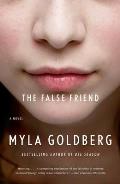
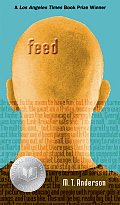
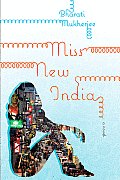
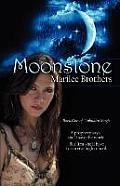
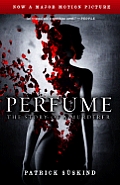
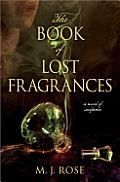 After the death of their father, Robert and Jacinthe L'Etoile inherit the family's distinguished perfume house, which is on the brink of financial ruin. Tensions between the siblings are high. Jac wants to sell two of the house's signature fragrances to keep the business afloat, while Robbie believes that he can find another way to save the struggling firm.
After the death of their father, Robert and Jacinthe L'Etoile inherit the family's distinguished perfume house, which is on the brink of financial ruin. Tensions between the siblings are high. Jac wants to sell two of the house's signature fragrances to keep the business afloat, while Robbie believes that he can find another way to save the struggling firm.
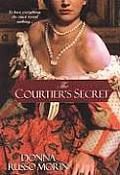 17-year-old Jeanne Du Bois was sent off to a convent seven years ago. When the sisters tire of her insolence, Jeanne is returned to court (Louis XIV's at Versailles). Stifled by the restrictions of life as a female courtier, Jeanne spends what free time she has eavesdropping on the palace's school room and sneaking off to fencing lessons with her uncle.
17-year-old Jeanne Du Bois was sent off to a convent seven years ago. When the sisters tire of her insolence, Jeanne is returned to court (Louis XIV's at Versailles). Stifled by the restrictions of life as a female courtier, Jeanne spends what free time she has eavesdropping on the palace's school room and sneaking off to fencing lessons with her uncle.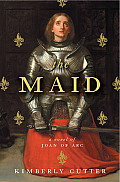 She looked up at her saints in the stained-glass windows, Saint Catherine, Saint Margaret, Saint Clare... those tall, sad, lovely women illuminated by the sun. She though of their enormous love for God, their heroic lives, their miracles. How they'd found a way to be bigger, better, to do good, fight evil, escape the mud, the smallness of life. She thought they were the luckiest people in the world. (32)
She looked up at her saints in the stained-glass windows, Saint Catherine, Saint Margaret, Saint Clare... those tall, sad, lovely women illuminated by the sun. She though of their enormous love for God, their heroic lives, their miracles. How they'd found a way to be bigger, better, to do good, fight evil, escape the mud, the smallness of life. She thought they were the luckiest people in the world. (32)